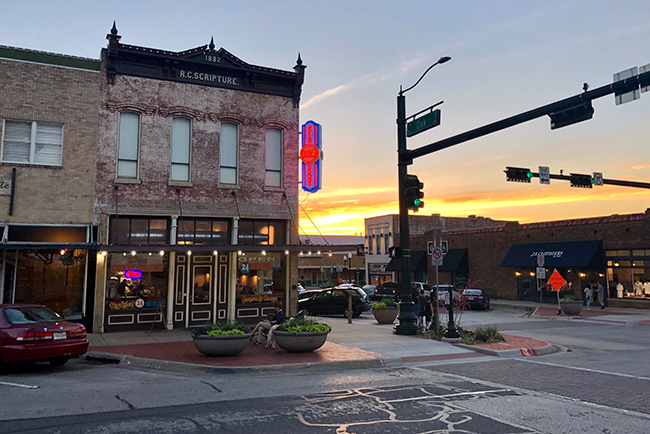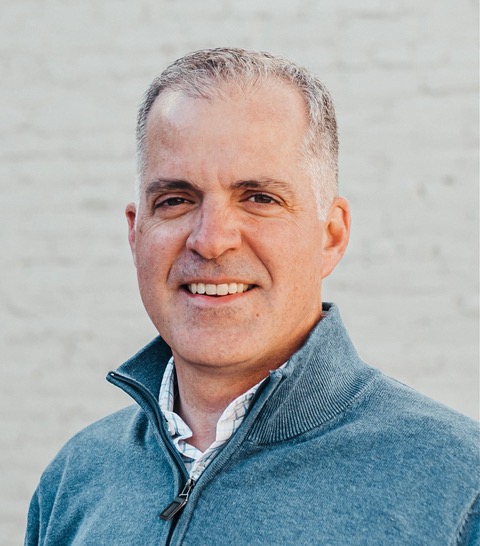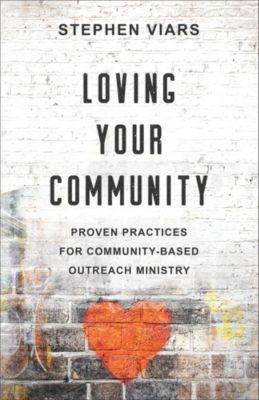
These questions give everyday Christians an opportunity to live as gospel missionaries in their own community.
By Daryl Crouch
How are things going at church? Pastors often get that question. Sometimes we like answering it, and at other times, we don’t.
Actually, the answer to that question depends on what things you’re asking about. The Great Commission is a disciple-making mandate, and disciple making is a multi-step process.
For example, one important metric in that process is baptisms. In Matthew 28, Jesus commanded His disciples to baptize new believers. We rightly celebrate new life in Christ through baptism. So, if we want to know how things are going at church, we look at the number of people baptized in a given year. This means we must focus on discipling our churches in the way of evangelism—especially since just two years ago, more than half (55%) of churchgoers said they hadn’t shared the gospel in the past six months.
The Great Commission, however, also includes other metrics. Jesus told the disciples to teach new believers all that He had commanded them. So again, in church life, another measure of health is how many people attend small groups or other Bible study opportunities.
There are a number of vital statistics that mark the health of a church and its impact in the kingdom.
A few years ago, as Jimmy Scroggins, pastor at Family Church in West Palm Beach, Florida, was introducing the evangelistic tool called “Three Circles,” I remember him saying something like this, “Rather than just asking how our church is doing, why don’t we ask how our city is doing? Are there fewer lost people in our city than there were a year ago? Are there fewer hungry people, addicted people, broken people?”
Asking the right questions is really important, and while every pastor must shepherd the flock the Lord gives to us, the Great Commission ultimately moves Jesus followers into the lives of people who are lost.
While every pastor must shepherd the flock the Lord gives to us, the Great Commission ultimately moves Jesus followers into the lives of people who are lost. — @darylcrouch Click To TweetI noticed that in my church, we didn’t have a metric for that. We were asking many of the right questions, but we weren’t going far enough. As a result, we were undermining the disciple-making pathway hoping for transformed lives to rise up from the baptismal waters without doing what it takes to equip and unleash everyday missionaries to show and tell the gospel to people who haven’t made it to church just yet.
So we kept the good questions that included church attendance and baptisms, but we added new questions that reshaped our priorities and opened our hearts to the community where God had planted us. Here are four of those questions:
What are the most significant pockets of vulnerability in the community?
As Jesus prepared His disciples for ministry in Luke 9, He sent them out with two priorities:
- Proclaim the kingdom
- Heal the sick
Jesus wanted His disciples to see and to serve those people most people overlooked. He wanted them to pay attention to their needs and to embody the good news they proclaimed.
When we care about how our city is doing, we stop and ask the same question every international missionary asks when they begins their work: “Who among us are most vulnerable and how can I help?” Click To TweetWhen we care about how our city is doing, we stop and ask the same question every international missionary asks when she begins her work: “Who among us are most vulnerable and how can I help?”
City assessment tools are available and helpful, but the first step in identifying the major pockets of vulnerability in your community, is to ask. Ask the mayor’s office. Ask the local school. Ask first responders. Ask healthcare workers. Ask business leaders. Until we know who is most vulnerable and why they are in need, we will fall short of equipping and sending our church to help.
Until we know who is most vulnerable and why they are in need, we will fall short of equipping and sending our church to help. — @darylcrouch Click To TweetWho is already serving the community well—and how can I help them?
By God’s grace, there are many people and organizations in our communities doing amazing work to help those who are marginalized or overlooked.
For example, public schools already exist to educate students. But education is just one aspect of their work because almost every pocket of vulnerability in a community intersects in the public school. When parents are jobless or facing addiction or mental health challenges, the student comes to school hungry, unprepared to learn. Behavior issues emerge. The school counselor gets involved and quickly discovers family trauma that has created incredible challenges for the student to overcome. At that point, mentors and tutors from our churches become an invaluable resource to that student and to the school.
In every community, government agencies, Chambers of Commerce, local nonprofits, and other churches are already doing good work.
Churches need to step forward, do the long work of building trust with community partners, and then serve those who are already engaged in the work. — @darylcrouch Click To TweetSo churches do not need to start new programs to reach their community. We just need to step forward, do the long work of building trust with community partners, and then serve those who are already engaged in the work. And in that process of serving, we build meaningful, transforming relationships with all kinds of people who need help and hope.
How do racial minorities characterize the health of the community?
The public discourse in popular media around race relations has become polarizing. And if we watch the news or read social media, we are invited into what appears to be an effort to divide us rather than to reconcile us.
But if we step away from our news feed and look again to the ministry of Jesus and His disciples, we discover that the gospel reconciles people who were once separated by sin and the sinfulness of bigotry. Ephesians 2 teaches that in Christ, the dividing wall between us has been removed.
If we step away from our news feed and look to the ministry of Jesus and His disciples, we discover that the gospel reconciles people who were once separated by sin and the sinfulness of bigotry. — @darylcrouch Click To TweetJesus’ story of the Good Samaritan was not haphazard. He consistently challenged the ethnic divisions held so tightly by the Jewish system. And in this case, He elevated a Samaritan, who would have been viewed as a “half-breed,” to a place of honor.
So the best work in the arena of racial reconciliation is at the local level. Most of us naturally gravitate to people who look, live, and believe like we do. Our personal experiences have shaped us in unique ways, so we are often not even aware of our biases.
But if we are to put other people first and love our neighbors well, we will make the effort to get to know them, cultivate a friendship with them, learn from them, and trust the transforming work of the gospel to reconcile us. This is particularly true as we consider racial minorities in our communities.
When we ask questions, listen to the experiences and perspectives of people who aren’t in the ethnic majority, and when we are committed to keep listening even when it’s difficult or when we disagree, we will discover a lot of things the popular media will not tell us. We will connect a story to a person. We will see their humanity, honor them as fellow image bearers, and begin building solutions together that allow our communities to flourish.
How well do local church pastors know and support one another?
When we read about the church of Ephesus or Corinth or Rome, we likely aren’t reading about one congregation in each city. Rather, there were multiple congregations scattered throughout a city and region who understood their Christian fellowship was rooted in their gospel partnership.
And when we consider the profound lostness of our communities today, every notion of pastors or churches competing with one another quickly fades away. Instead of competitors, we are co-laborers in the work of the Lord. We are partners in kingdom ministry.
When we consider the profound lostness of our communities today, every notion of pastors or churches competing with one another quickly fades away. — @darylcrouch Click To TweetThis may be the most significant work the Lord has done in our community over the last few years. As pastors of gospel-loving churches of all sizes and across all denominations and traditions have pursued genuine friendship, barriers have been removed, trust has emerged, and kingdom work has advanced.
When pastors love one another, the community takes notice. Leaders from every sphere of influence begin to reach out for help, support, and advice. Church members begin to view other believers as brother and sisters in Christ, and joyfully work together to serve the community. But it begins with leaders setting the example and building genuine friendships.
These questions, and others like them, do not distract us from the Great Commission. Instead, they give everyday Christians an opportunity to live as gospel missionaries in their own community.

Daryl Crouch
Daryl Crouch is the executive director of Everyone’s Wilson, a network of gospel-loving churches working together for the good of the community. Prior to this role, he pastored churches in Texas and Tennessee for 28 years. He and his wife Deborah have four children.












